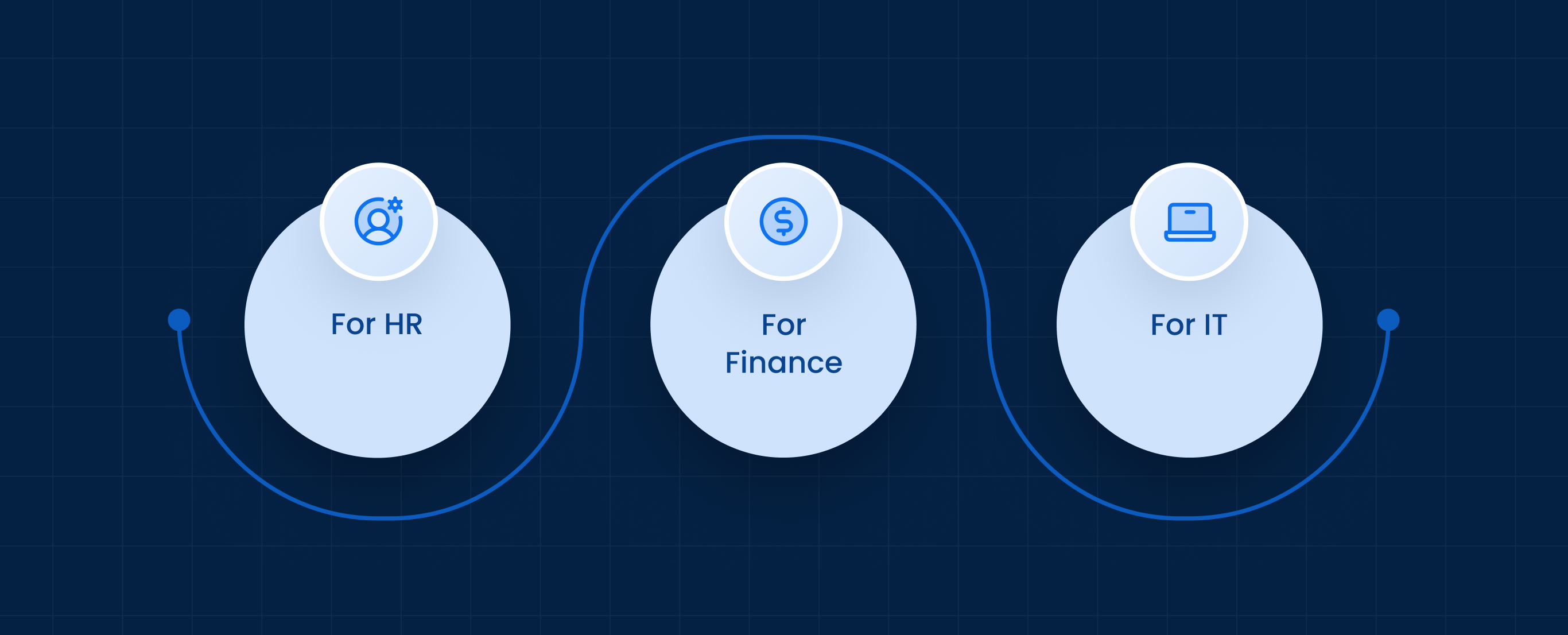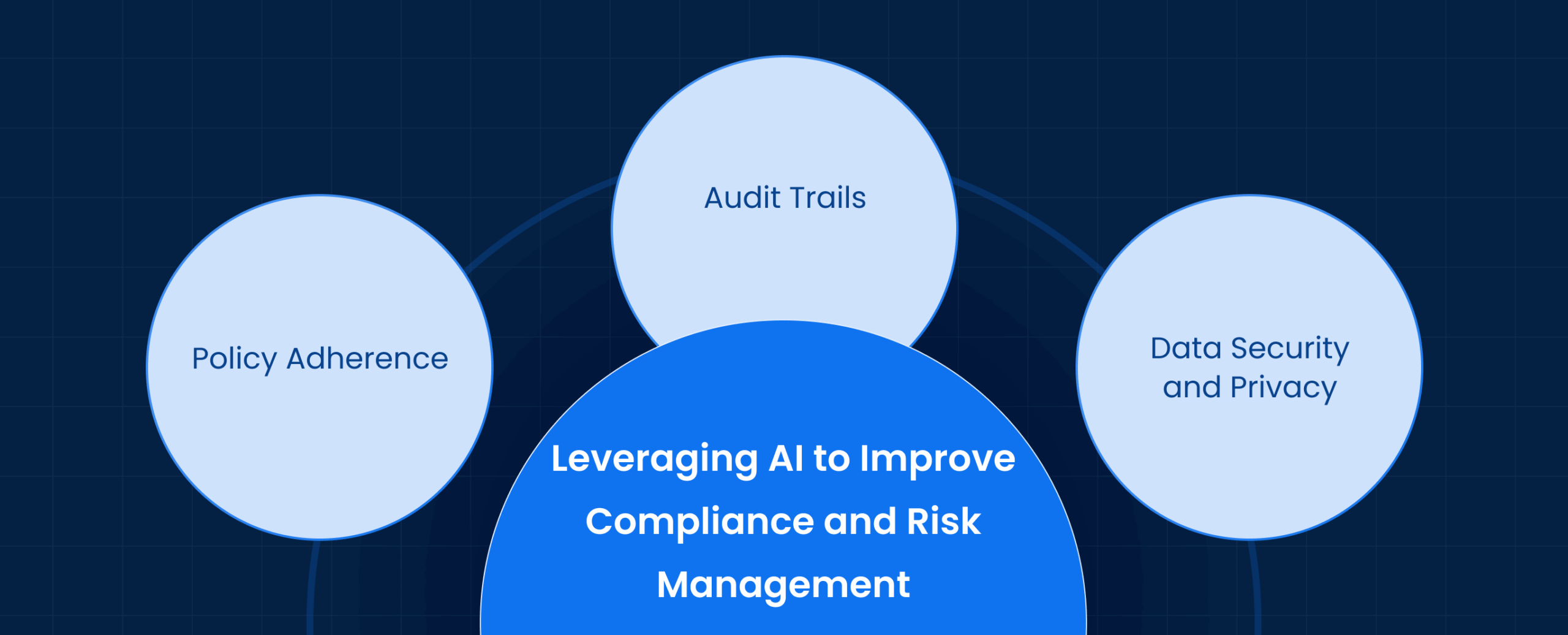Introduction
In the dynamic landscape of 2025, enterprises are under increasing pressure to do more with less, to innovate faster, and to provide an unparalleled employee experience. At the heart of this transformation is AI business process automation, a powerful force reshaping how large US companies manage their internal operations, especially within critical areas like IT, Human Resources, and Finance. This isn’t just about simple automation; it’s about intelligent systems that can understand, learn, and act autonomously, freeing up your valuable human talent for strategic initiatives.
What Is AI Business Process Automation and Its Enterprise Impact?
So, what exactly is AI business process automation? Simply put, it’s the application of artificial intelligence, particularly advanced language models and machine learning, to automate complex, multi-step business processes that traditionally required human intervention. For large organizations, this translates into AI agents capable of resolving common employee inquiries across various departments. Imagine an intelligent assistant that can diagnose and fix an IT issue, answer a benefits question, or even process a routine expense report, all without a human touch.
The enterprise impact of this technology is profound. Firstly, it dramatically improves operational efficiency. By automating repetitive and time-consuming tasks, employees receive faster resolutions, leading to higher satisfaction and less frustration. Secondly, it allows your specialized teams in IT, HR, and Finance to focus on more complex problems, strategic planning, and person-to-person interactions that truly require their expertise. Consequently, it redefines how work gets done, pushing companies towards a future of agile, data-driven operations.
How AI Automates Complex Workflows Across Departments

Modern AI agents are far more sophisticated than the chatbots of yesterday. They can understand natural language, interpret context, and even learn from past interactions. Therefore, when an employee submits a ticket for an IT issue, a payroll question, or a request for a new laptop, the AI agent doesn’t just provide a generic answer. Instead, it can:
-
For IT: Diagnose common software problems, troubleshoot network connectivity, reset passwords, provision access to applications, or even initiate a device replacement process. It can also proactively identify and resolve potential system issues before they escalate into widespread outages, moving from reactive problem-solving to proactive prevention.
-
For HR: Answer questions about company policies, benefits, vacation accrual, or training programs. It can also guide employees through onboarding tasks, update personal information, or help schedule performance reviews.
-
For Finance: Assist with expense report submissions, reconcile minor discrepancies, answer questions about payment cycles, or provide status updates on invoices.
This seamless automation across departments leads to significant improvements in service delivery. Furthermore, it ensures consistency in responses and frees up human experts to handle the nuanced and sensitive cases that truly demand their attention.
Driving Operational Efficiency Through Intelligent Process Automation
Operational efficiency is a continuous pursuit for any large enterprise. AI business process automation is a powerful lever for achieving this by streamlining workflows and reducing manual effort. Consider the sheer volume of tickets a large US company handles daily across IT, HR, and Finance. Each ticket, if handled manually, consumes valuable employee time and resources.
By deploying AI agents, companies can achieve:
- Reduced Resolution Times: Many common inquiries can be resolved instantly by the AI, drastically cutting down the waiting period for employees.
- 24/7 Availability: AI agents never sleep, providing continuous support outside of regular business hours, which is crucial for a geographically dispersed workforce.
- Consistent Service Quality: AI ensures that every employee receives the same high standard of information and assistance, eliminating human error or variations in service.
- Cost Savings: By automating routine tasks, organizations can reallocate resources and reduce the operational costs associated with handling high volumes of simple requests.
Ultimately, this intelligent automation allows your organization to operate with greater agility, responding more quickly to employee needs and optimizing the use of your most valuable asset: your people.
Leveraging AI to Improve Compliance and Risk Management
Beyond efficiency, AI business process automation plays a crucial role in strengthening an enterprise’s compliance posture and managing risk. In highly regulated industries, manual processes are prone to human error, which can lead to non-compliance, financial penalties, and reputational damage.
AI agents, when properly configured and trained, can ensure that:
- Policy Adherence: Every automated action or response aligns perfectly with company policies and regulatory requirements. For example, an AI processing a new employee request can ensure all necessary security protocols and access restrictions are applied automatically, reducing human oversight failures.
- Audit Trails: AI-driven processes create detailed, immutable audit trails of every interaction and action taken. This transparency is invaluable for demonstrating compliance during audits and investigating any discrepancies.
- Data Security and Privacy: By automating data handling and access provisioning, AI can help enforce strict data security protocols, minimizing the risk of unauthorized access or data breaches, a critical concern in today’s digital landscape.

Therefore, integrating AI into your processes not only makes them more efficient but also more secure and reliable, reducing your organization’s exposure to common operational risks.
Key Metrics to Measure the Success of AI Business Process Automation
Implementing AI business process automation requires a clear understanding of its impact. As technology leaders, it’s essential to track the right metrics to ensure your investment is yielding tangible returns. Moving beyond basic ticket counts, key performance indicators for an AI-augmented service desk in 2025 include:
- First Contact Resolution Rate (FCR) for Automated Tickets: This measures the percentage of employee issues fully resolved by the AI agent without human intervention. A higher FCR indicates effective automation.
- Average Resolution Time (ART) for Automated Tickets: How quickly is the AI agent resolving specific types of requests? This metric highlights speed and efficiency gains.
- Agent Satisfaction with AI Tools: While AI automates some tasks, it also assists human agents. Measuring their satisfaction with AI-powered suggestions or co-pilots indicates successful augmentation.
- Employee Satisfaction (ESAT) with AI Interactions: Are employees happy with the experience of interacting with the AI agent? Feedback on ease of use, accuracy, and speed is crucial.
- Cost Per Resolution (CPR) Reduction: Quantifying the financial savings achieved by automating tickets compared to manual handling.
- Percentage of Proactive Issue Resolution: For IT, how many issues did AI identify and resolve before they generated a ticket, showcasing the shift from reactive to proactive support.
By focusing on these metrics, you can clearly demonstrate the value of AI business process automation and make data-driven decisions for further expansion.
How Leena AI Enhances Enterprise Processes with Autonomous Automation
For large enterprises looking to harness the full potential of AI business process automation, Leena AI offers pioneering “Agentic AI in IT” solutions designed to deliver autonomous automation across IT, HR, and Finance. Leena AI’s platform goes beyond simple chatbots, leveraging advanced AI models to understand complex requests, execute multi-step workflows, and continuously learn from interactions.
Consider an IT scenario where an employee’s application access has expired. Leena AI’s agent doesn’t just tell them what to do; it can actively reset their access, update their permissions across multiple systems, and confirm the resolution, all autonomously. This frees up IT professionals from repetitive tasks, allowing them to focus on critical infrastructure and strategic projects. Leena AI creates value by:
-
Delivering Instant Resolution: Providing employees with immediate answers and solutions for a wide array of queries.
-
Boosting Agent Productivity: Augmenting human agents with intelligent tools that suggest answers, summarize tickets, and automate data entry.
-
Ensuring Seamless Integration: Connecting effortlessly with existing enterprise systems like ServiceNow, Workday, SAP, and hundreds more, maintaining a unified source of truth.
-
Offering Enterprise-Grade Security: Prioritizing data privacy and compliance within its robust AI framework.
Leena AI isn’t just automating tasks; it’s empowering enterprises to build a smarter, more responsive, and efficient operational backbone.
Frequently Asked Questions
What is the primary benefit of AI business process automation for my company?
The main benefit is a significant increase in operational efficiency, leading to faster service delivery, reduced costs, and improved employee satisfaction across IT, HR, and Finance. It streamlines how work gets done.
How does AI business process automation handle sensitive employee data?
Reputable AI platforms, like Leena AI, prioritize robust security and compliance features. They are designed to manage sensitive data with strict access controls, encryption, and adherence to regulations such as GDPR and CCPA.
Will AI business process automation replace my entire support team?
No, the goal of AI business process automation is to augment, not replace, human teams. It handles routine and repetitive tasks, allowing your support staff to focus on complex issues, strategic initiatives, and personalized interactions that truly require human empathy and expertise.
What is the implementation timeline for AI business process automation in a large enterprise?
Implementation timelines vary depending on the complexity of your existing systems and the scope of automation. However, with modern, composable AI platforms, initial deployments can be seen in a matter of weeks, with continuous expansion and refinement over several months.
How do I measure the return on investment (ROI) for AI business process automation?
Measuring ROI involves tracking metrics such as reduced resolution times, increased first-contact resolution rates, decreased operational costs, and improved employee satisfaction scores. These provide a clear picture of the value generated by AI business process automation.
Can AI business process automation integrate with our existing ticketing systems?
Absolutely. Leading AI business process automation solutions are designed for seamless integration with major enterprise resource planning (ERP) and ticketing systems like ServiceNow, Workday, and SAP, ensuring a unified and efficient workflow.
What differentiates current AI business process automation from older automation tools?
Modern AI business process automation leverages advanced artificial intelligence, like large language models, to understand context, learn from interactions, and perform complex, multi-step tasks autonomously. This is a significant leap beyond rule-based automation.













